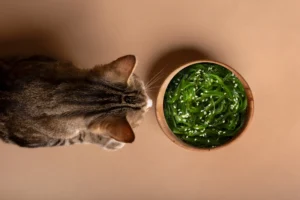As devoted cat owners, ensuring the well-being of our feline companions is of utmost importance. A crucial aspect of feline care that directly impacts their health and longevity is nutrition. In this comprehensive guide, we will explore the seven essential nutrients that are fundamental to your cat’s well-being, providing insights to help you make informed decisions about their diet for optimal health and happiness.
The Foundation: Cat Nutrition Basics
Understanding Cat Nutrition
Before diving into the specific nutrients, it’s essential to have a basic understanding of cat nutrition. Cats are obligate carnivores, meaning their diet primarily consists of meat. Unlike omnivores, they have unique nutritional requirements that focus on obtaining essential nutrients from animal sources. Recognizing and meeting these requirements is crucial for their overall health.
Protein: The Building Block of Feline Health
The Role of Protein in Cat Diets
Protein is the cornerstone of a cat’s diet, serving as the building blocks for essential bodily functions. High-quality animal-based proteins, such as those found in meat, are vital for maintaining muscle mass, supporting immune function, and promoting overall well-being. Ensure that your cat’s diet contains a sufficient amount of high-quality protein for optimal health.
Choosing the Right Protein Sources
Selecting the right protein sources is critical. Opt for cat foods that list a specific meat source, such as chicken or fish, rather than generic terms like “meat by-products.” This ensures your cat receives the essential amino acids necessary for their well-being.

Fat: Energy and More
Importance of Dietary Fat
Dietary fats play a crucial role in cat nutrition, providing a concentrated source of energy and supporting various physiological functions. Essential fatty acids, such as omega-3 and omega-6, are particularly important for maintaining healthy skin and a lustrous coat. Including sources of healthy fats in your cat’s diet contributes to their overall vitality.
Balancing Fat Intake
While fats are beneficial, it’s crucial to maintain a balance. Too much fat can lead to obesity, while too little can result in nutritional deficiencies. Choose cat foods that contain moderate amounts of healthy fats to support your cat’s energy needs without compromising their health.
Carbohydrates: Limited but Important
Cat’s Unique Relationship with Carbohydrates
Unlike some other species, cats have a limited ability to metabolize carbohydrates. While not an essential nutrient, a small amount of carbohydrates can be included in their diet for energy. However, a high-carbohydrate diet is not suitable for cats and may contribute to health issues. Choose cat foods with a balance that aligns with their carnivorous nature.
Vitamins: Essential for Vital Functions
Understanding Vitamin Requirements
Vitamins are essential micronutrients that play a crucial role in various bodily functions. Cats require specific vitamins like A, D, and E for vision, bone health, and antioxidant protection. Providing a well-balanced diet ensures your cat receives the necessary vitamins to support their overall health.
The Right Amount Matters
While vitamins are essential, excessive intake can be harmful. Ensure your cat’s diet meets the recommended vitamin levels, either through high-quality commercial cat food or veterinarian-approved supplements if necessary.
Minerals: Building Blocks for Strong Bones
Importance of Minerals in Cat Nutrition
Minerals, including calcium, phosphorus, and magnesium, are vital for maintaining strong bones and teeth. Adequate mineral intake is crucial for preventing skeletal issues and promoting overall feline health.
Balancing Mineral Ratios
Maintaining the right balance of minerals is key. Excessive or deficient levels can lead to health problems. Choose cat foods formulated to meet the appropriate mineral ratios for your cat’s life stage.
Water: Vital for Hydration
The Significance of Hydration for Cats
Water is often overlooked but is a critical nutrient for cats. Adequate hydration supports kidney function, aids digestion, and helps regulate body temperature. Ensure your cat has access to fresh, clean water at all times to promote optimal health.
Taurine: Essential Amino Acid for Cats
Taurine’s Role in Feline Health
Taurine is an amino acid crucial for cats, as they cannot synthesize it in sufficient quantities. It plays a vital role in vision, heart health, and overall immune function. Make sure your cat’s diet includes sources of taurine to prevent deficiency-related health issues.
In conclusion, understanding the seven essential nutrients for your cat is paramount to ensuring their overall health and well-being. By incorporating high-quality protein, healthy fats, balanced carbohydrates, vitamins, minerals, water, and taurine into their diet, you lay the foundation for a happy and healthy feline companion. Always consult with your veterinarian to tailor your cat’s nutrition plan based on their specific needs and life stage.











